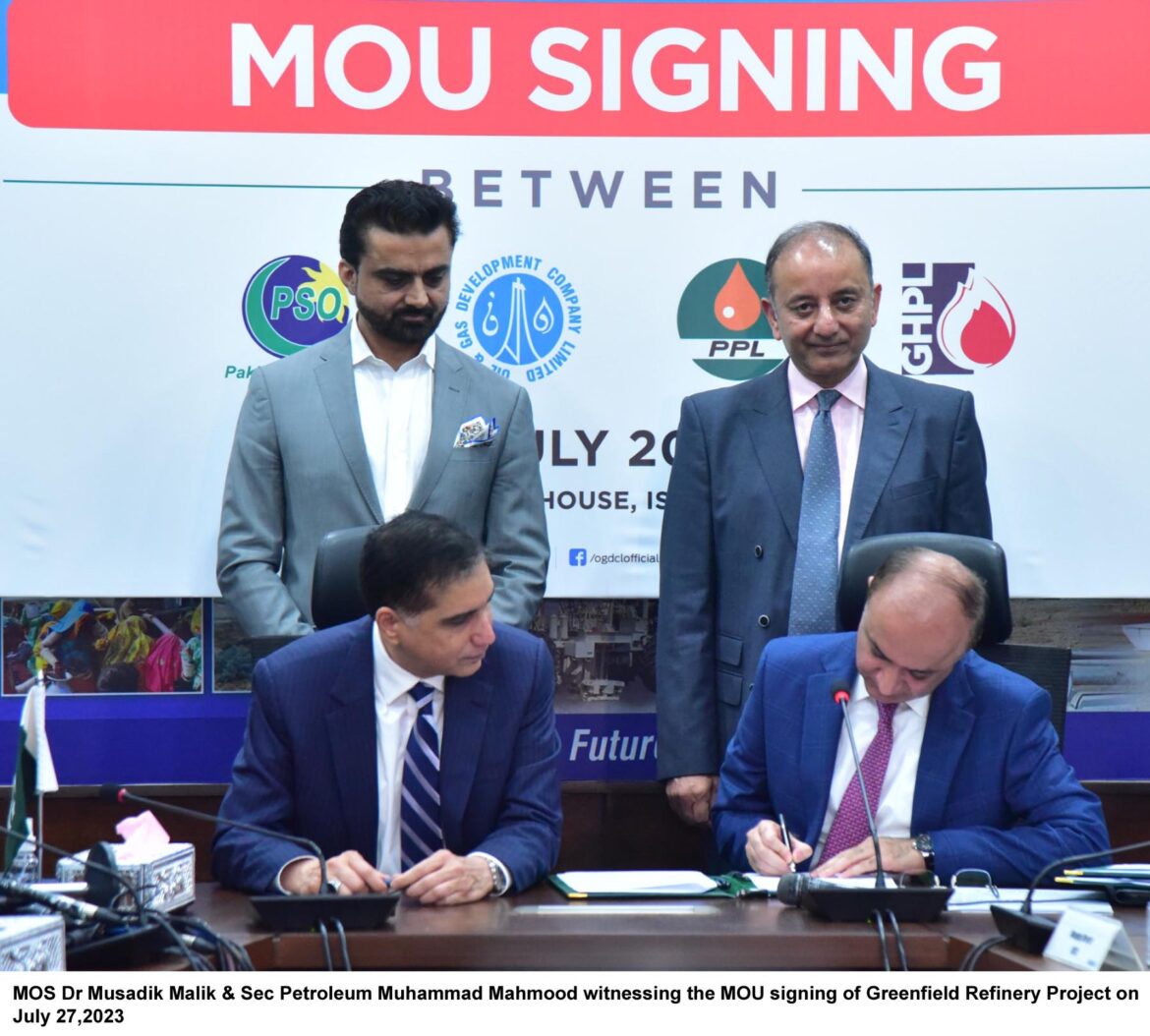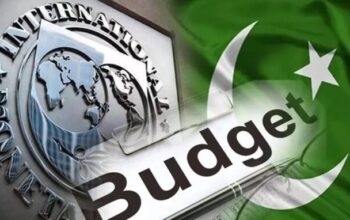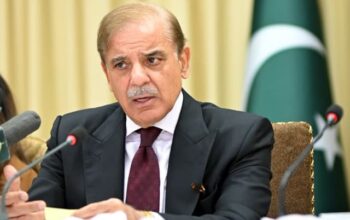By Staff Reporter
ISLAMABAD: Pakistan has signed three memoranda of understanding (MOUs) with four state-owned enterprises to raise the local equity for a multibillion-dollar Saudi refinery project and inked an engineering, procurement, and construction (EPC) contract with a Chinese firm, a minister said on Thursday.
The MOUs were signed by Pakistan State Oil (PSO), Oil and Gas Development Company Limited (OGDCL), Pakistan Petroleum Limited (PPL), and Government Holdings Private Limited (GHPL) to raise more than 40 percent of the local equity for the $10-$12 billion project, which will be in Gwadar Port of Balochistan province.
The EPC contract was signed with China National Offshore Oil Corporation (CNOOC) and Pakistan’s Monarch International, which will also take a position in the equity, said Dr. Musadik Malik, minister of state for petroleum.
The refinery, which will have a capacity of 300,000 barrels per day and produce diesel and gasoline with Euro 5 specifications, will be established under a new green refinery policy that offers incentives such as a 7.5 percent deemed duty for 25 years and a tax holiday of 20 years.
The project will be financed on a 30:70 equity-loan ratio, with Pakistan and Saudi Aramco each contributing 15 percent of the equity. Saudi Aramco, one of the world’s biggest oil companies, will lead the project in arranging the loans.
Malik said Pakistan, Saudi Arabia, and Aramco were “honored partners” and had held many rounds of talks to reach an agreement on the way forward.
“We are in the final stages, which means we basically are at the spreadsheet level, trying to take out all the wrinkles that are there or that are possible,” he told reporters on the sidelines of the signing ceremony.
“PSO is taking the lead in local equity with 25 percent and other firms also committed 5 to 10 percent which makes our equity share more than what is required.”
Malik said the Pakistan government had brought in the best Chinese company for the purpose of EPC contracts.
“We have already brought to the table world-class refinery EPC construction partners who are also going to take a position in the equity,” he said.
Malik added that after the announcement of the new refinery policy, the government had also initiated talks with the United Arab Emirates (UAE) and Azerbaijan for investment in the sector.
The MOU will be valid for three years and will entail regular meetings and a steering committee to monitor progress. The project-related costs will be proportionately divided among the parties as equity partners.
The outgoing coalition government had increased the pace of talks with Saudi Arabia for an umbrella agreement to materialize the project, which is expected to boost Pakistan’s energy security and reduce its import bill.
Saudi Arabia wants China to be part of the project and build it, and Chinese banks would also be ready to provide loans for the project.
The planned green refinery will be allowed to sell its products to any marketing company in the country or export surplus products subject to approval from the Oil and Gas Regulatory Authority (OGRA).
The refinery can also export products with specifications that do not have domestic demand under intimation to OGRA and the Ministry of Energy and Petroleum Division (MEPD).
Pakistan’s oil refining capacity is about 450,000 bpd, equivalent to 20 million tonnes per annum. However, the actual capacity utilization is at around 11 million tonnes due to the decreasing demand for furnace oil in the country because of a change in the energy mix in the power sector.
Pakistan’s demand for motor gasoline and high-speed diesel is expected to reach 33 million tonnes per annum by 2035, according to an international consultant. The country has been importing significant volumes of petrochemicals, worth more than $2 billion annually, as there is no primary petrochemical production facility in Pakistan.
Copyright © 2021 Independent Pakistan | All rights reserved




